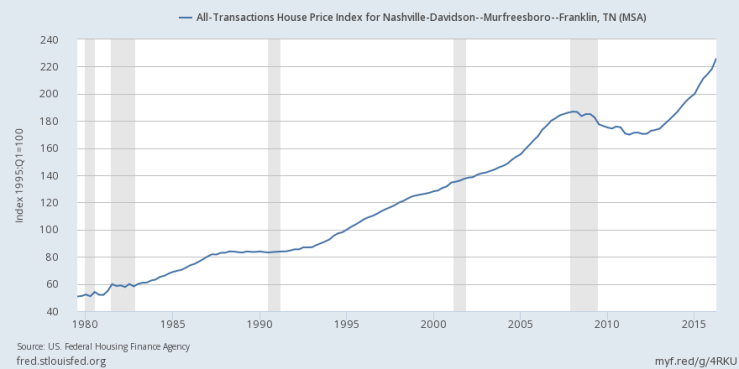It was a year that felt like a decade: 2017 saw the arrival of a new president… the unsealing of long-held silences on abuse and consent, a radically new world order and a terrifying spate of natural and human-made disasters (fire, water, terror). It was also a year full of stuff.
Yes, it’s been quite a year. And while we might feel like our world is in the process of changing in unimaginable ways, one thing remains constant: our need for stuff. But what stuff? Just any pair of socks or tub of body butter isn’t going to cut it, not after what we’ve been through. Our gifts need to be luxurious enough to counter the terrifying visions of privation and violence that haunt our futures, while also being oneiric enough to keep pace with the surreal affect of everyday life. Luckily, when it comes to extravagant items that fill you with a lingering sense of dread, there’s no better source than the New York Times. Even during the Obama years, when things were relatively normal, the Styles section was hysterically begging us to buy solid platinum staples and miniature yachts for dogs. Now look at them! They’re linking to e-commerce pages for Nazi armbands and warning us not to wear bathrobes because they’re associated with “grim details of sexual assault and harassment.”
Clearly, the deranged hivemind that writes this stuff is in touch with the cultural zeitgeist. It’s too late to buy anything by Christmas, but it doesn’t matter; just immerse yourself in the weirdness.
For the bereaved: DNA tattoos
Why: Tattoos are a classic concept that’s beloved by all, but there’s a problem. Too many people are wasting valuable skin space just making an aesthetic statement in the medium of line and color, instead of creating morbid tributes to their dead loved ones that creep everyone out. All that’s about to change, thanks to “an idea [that] came tattooed on the leg of a woman kicking through the water in Key Largo, Fla., seen clear as day through Patrick Duffy’s diving goggles.” Translated from Styles-section-ese, this means Duffy saw someone with a tattoo. “It was her dedication to her late husband, a Navy SEAL killed in combat. ‘In that moment, I thought, “Wouldn’t it be cool to turn that tattoo into a reliquary?”’” He apparently answered himself in the affirmative, despite the idea of turning a tattoo into a reliquary having had no previously accepted meaning.
He wanted to help the woman “put a piece of something she cared about, maybe even her husband, into the tattoo itself.” Given that the tattoo is of her husband, what else would the “something” have been? What else besides a very close loved one would anyone care about enough to turn into a subcutaneous reliquary? (People who stood in line for Rick and Morty szechuan sauce, please don’t ponder this question.)
No, the husband memorial was definitely the way to go, and Duffy “has brought the idea to life with Everence,” a powder synthesized from DNA samples that you can mix into tattoo ink. He hopes it “will deepen bonds — in the most literal and physical way — between family, friends and loved ones.” If said loved ones aren’t dead, it might be a tad more literal to give them a hug, but okay. The author claims Everence “is about as biologically intimate as one can get,” a notion that worryingly suggests he is unaware of the facts of life & believes babies come from the cabbage patch.
In any case, Duffy is now part of “a winding list of biohackers, artists and technologists dabbling in the world of biogenic tattoo artistry.” A winding list? Pro tip, next time just get a rectangular piece of paper and write the names down below one another.
Duffy joins the elite list of luminaries who already had the same idea as him, but earlier: “Many have mixed ash, hair or other material with inks to include organics in tattooing for years.” But he’s put his own twist on it. “So far this has been something of a symbolic gesture, as the organic material introduced into their inks would eventually be absorbed into a subject’s body,” whereas we all know the DNA dust has to stay in the tattoo for it to be literal. “Mr. Duffy and his partners believe this creates an even more palpable, resonant bonding experience.” By operationalizing and tangibilizing the DNA, it will betterify the experience and exponentialize the emotions.
“Others write off the practice as part of the growing bodyhacking movement.” Have they thought of writing it off as fucking stupid? People are really taking the long way around when it comes to writing this off. “Customers… mail their DNA samples to Endeavor’s laboratory… where the material is milled, sterilized and enclosed in microscopic capsules of PMMA — you know it as plexiglass.” Someone is feeling very highbrow for having just learned what PMMA is. The Times has fired hundreds of editors this year; it would be worth hiring them all back at twice their salaries just so there would have been one person around to tell this writer “just say ‘plexiglass.'”
“The pitch is a curious, emotionally poignant one coming from Mr. Duffy, a gruff, plain-spoken New Yorker with a background in real estate and a degree in political science.” That’s exactly the kind of person who would think of this, though. Super mainstream people who invest in real estate are always doing stuff like starting a small-batch vodka brand to honor wounded service dogs or getting people to run an obstacle course through a swamp to raise awareness for gout.

Duffy has a less conventional partner: Virginia Elwood, a tattoo artist whom he cold-pitched and who opened his email “only because she thought he was the actor who played the father on the 1990s sitcom “Step by Step.” I hate it when I think the dad from Step by Step is emailing me about injecting cremated ashes into the bodies of the living but instead it’s just some random guy!
Price: $650
For the woke woman: Designer clothes
Why: Tattoos might remind us of the past, but we also need to look toward the future. Today’s hottest designers know that, and they’re doing their best to empower us. For instance, it seems that Dior artistic director Maria Grazia Chiuri has “picked up the banner of feminism… discovering its heroines and using them as muses in her shows, from Chimamanda Ngozi Adichie to Georgia O’Keeffe and Amelia Earhart. It should have made her the perfect designer for these ‘woke women’ times.” First a woman presidential candidate, now a woman willing to use women as muses for women’s fashion… things are really starting to come together for us women!
But apparently she’s doing a bad (?) or possibly too good (??) job incorporating her ideals into the clothes. “As consistently as she has stuck to her agenda, she has stuck to her separates: couture denim — this season in patchworks of different faded washes and weaves — and Dior-branded underthings.” Sure, sure… fine… the fact that the tattered Phish concert denim and the underwear with the big logos on it are separates makes it so I can mix and match instead of wearing the same ensemble every day. “But what feminist, even a millennial one, wants to wear a mirrored mosaic onesie in bright pink or blue under a transparent tulle skirt open to the waist that looks like nothing so much as Madonna in her ‘Desperately Seeking Susan’ years?” Is this a riddle? “These are not the clothes of revolution, even New Look revolution.” Yeah! Even those New Look revolution clowns wouldn’t have put up with this mirrored mosaic onesie shit! (Unless the fact that it’s a mirrored mosaic onesie is good, and it’s something else about it that’s bad — just trying to follow along here.) “Ms. Chiuri is not rejecting clothes dictated by the patriarchy…. Those playsuits… sort of undermined the whole exercise.” As I was saying, I think it’s the playsuits that are the problem. They COMPLETELY undermine the exercise of dismantling the patriarchy through Dior runway shows.
It seems we’ll have to look elsewhere for woke women clothes. Fortunately, where Chiuri failed, designer Simon Porte Jacquemus seems to have succeeded — and for equally inscrutable reasons! “By knotting, draping, ruching and otherwise swathing bodies in dresses based on the concept of the beach-ready maillot and pareo (even if they came in pinstriped linen and jersey), adding mismatched geometric earrings and gigantic straw hats, he generally upped the sophistication factor.” That well known formula for upping the sophistication factor: Ruche and swathe the maillot and pareo, add mismatched geometric earrings and a gigantic straw hat, and bam!
Jacquemus isn’t the only one who’s killing it. “At Maison Margiela, John Galliano, who has in the past occasionally suffered from a surfeit of ideas [editor’s note: oh totally, me too] continued to explore the limits of the décortiqué approach he introduced a few seasons ago, which effectively means reducing garments to their bones and then layering and otherwise recombining them to challenge received convention.” I already knew that that’s what décortiqué meant… using bones of designs and layering to challenge received convention. I was just waiting to say it because I wanted to make sure the author knew what it meant.
At Saint Laurent… in the glittering shadow of the nighttime Eiffel Tower, Anthony Vaccarello offered up: shorts. Or, to be fair, sex and shorts…. Attenuated limbs emerged from explosions of ostrich feathers or perhaps a single steroid-fueled red leather or fuchsia satin ruffle…. The steam rising off the fountains of the Trocadéro in the background simply added to the effect.
I’ve noticed that it often does… when you have steam rising through the air, it tends to add to the effect of attentuated limbs emerging from an explosion of feathers and a steroid-fueled ruffle. Pretty much a truism in the industry, and I’m surprised the author bothered to mention it.
“[The clothes were] a siren call to dance in the darkness…. These women weren’t asking ‘why’ — they were asking ‘why not?’ And they sure as sparkle weren’t going back to sleep any time soon.” And neither are today’s women. Oh wait, you just said that. Anyway, this is what you have to wear now if you’re woke.


As always, the cultural climate explains it. “Figure-obscuring clothing serves as a kind of armor, as well as a retort to a reality-TV-inured culture apparently intent on exposing… any intimate body part.” It’s a big time-saver for armor to also be a retort. In fact, that was one of the original functions of armor. In medieval times, the protective suits knights wore into battle doubled as a strong statement about the ubiquity of bawdy chansons and risqué poems about licentious millers.
Anyway, skintight jeans and skimpy skirts are fine for the Kardashians of this world, but what about those of us in active fields? Gallery owner Hanna Hoffman “says she prefers figure-enshrouding outfits… with her low heels and wide-cut pants, Hoffman told me, she can always jump up to grab an artwork or walk clients through her space.”
Besides the standing and walking factor, there are the intangible qualities of an outfit. “She told me that rather than a more conventionally feminine aura, she prefers to project a ‘rigor and intellectual thoughtfulness’ with her clothing choices.” Ladies, if we want people to take us seriously, we have got to get rid of this femininity stuff and start projecting intelligence instead! Then guys will get the message: This person’s not feminine, she’s thoughtful. Unless sexist people retain the assumption that femininity is inherently inferior, but also view women as inherently feminine. If they were to do that, we’d be foiled, and the only way to overcome their bigotry would be to dismantle the dichotomy between femininity and intellectual rigor. But I don’t think sexist men would do something unfair like that. No, the baggy pants ought to do it.
“Commenting on the body-conscious silhouette prevalent among assistant-level gallery girls when she was starting in the art world in the mid-2000s, Hoffman noted how the power of a certain breed of male gallery owner had often seemed to her to be transacted through exactly such specters of young female sexuality, ‘and that’s not something you want to do.’” I hate when women do that thing where men treat them like an object for their amusement with no hopes, dreams or inner worth just because they can see their knees!
Cost: $450
For woke women whose feet hurt: Ugly shoes
Why: Women love shoes. But can’t we rethink our preconceptions about what a great shoe looks like? Art publicist Florie Hutchison did just that after enduring a day of sexist microaggressions, such as seeing “a children’s book that preached the importance of female politeness.” Even texting gave no respite: “When she typed the word ‘shoe’ into her phone and the red high-heel emoji appeared as a substitute, it felt like a sign. ‘It was the first time I noticed and stopped in my virtual tracks and stared at the stiletto heel that auto-populated,’ Ms. Hutchinson said. ‘It was the emoji that broke the camel’s back.’” No, not a sign that her grasp of metaphor was so unusual that she could be the next Tom Friedman; rather, that she should join the ranks of women “fighting gender discrimination with their footwear.” She “sent a proposal to the Unicode Consortium’s emoji subcommittee” telling them to change the shoe emoji to a ballet flat, “a shoe that reads as female but not seductive or sexualized.”

Look, there is nothing “sexual” about adult women, and there’s no need for a symbol of womanhood to be “seductive” when you can just slap a bow on it instead. Why allude to sex when you could reference ballet, an art form that has never had any sexist stuff associated with it? But are emojis really that crucial a battleground? “Ninety-two percent of people online use emoji every year.” Every year! That means unless things change, a baby girl of average lifespan born today could view the sexist high heel emoji 81.2 times!
“There was a time when a pair of pumps was a marker of female adulthood… but our preferences have shifted dramatically toward athletic and comfort shoes.” That is, if objective empirical data are any indication: “Allbirds, a brand of merino wool ‘runners,’ are now part of the unofficial Silicon Valley uniform,” and “it’s not uncommon to see Danskos and Crocs….worn by white-collar professionals.” The writing is on the wall, and it’s clear that it will soon be all over for the pump.

Then there’s the political climate. These anxious times are making people cautious about their feet:
On Monday night, at [a] department store … near the World Trade Center, three young Canadian tourists… were waiting for an Uber to pick them up after a long day of walking in utilitarian black boots. They had woken up to the news of a crude pipe bomb explosion at Port Authority, across the street from their hotel in Times Square. They had ignored the rows of dressy shoes with heels,
reasoning that the ideal shoe is one that “wouldn’t impede you in any way.” The real story here is that the author apparently waited for terrorists to attack New York, then rushed out to a store by the WTC site to interview people about what shoes they were thinking about buying. Naomi Fry, you’ve transcended everything the world thought it knew about footwear journalism.
“’Why do the shoes we choose for ourselves make us less able to run away if we need to run away? …[T]here are quite a lot of times when, unfortunately, it would help to be able to run.'” Unlike the shoes pictured in this article, which are a runner’s dream come true.

Owning a pair of Crocs, clogs or Céline mules will put your loved one in tune with the zeitgeist. “‘If you’re a historian in 50 years [sic] time, and you start going through emoji with a fine-tooth comb, you’ll be able to say, this brick wall must have happened in 2017…. You can look at the flat shoe and say that was the year women decided to find their voice and collectively protest gender-stereotypical norms.’”
Cost: $29.99-$769
For members of the world’s social, cultural and hereditary elite: Vertex
Why: Shoe fads may come and go, but some things are eternal. Vertex is a new, yet old watch brand like no other. “It may not seem entirely rational to introduce a watch brand in today’s highly competitive market, but Don Cochrane is not a man driven by reason.” This wild man learned about the heritage watch brand his family used to own and decided to revive it. “I Googled it and started learning all this really amazing stuff. It was a bit of an epiphany.” Wow, what a story!
His Googling revealed that the watches were used by the British military, and “Mr. Cochrane said the narrative was perfect for a heritage watch brand.” Before long, Vertex watches were in production again, but how to keep them out of the hands of undesirable customers?
“He decided to build Vertex around a community, initially 60 people whom Mr. Cochrane personally invited to become Vertex owners. Forty-five accepted, and each was given five names to invite, growing the brand in turn. Sales are primarily limited to invitees, although anyone who owns one of the original W.W.W. Vertex models also can buy a new watch.”
According to Cochrane, “’Selling to retailers and customers is cool'” (I’ve always said this), but there’s just something about selling to a charmed circle of insiders, tastemakers and heirs to large fortunes that makes the design features of a watch face that little bit more aesthetically appealing.
These chosen few include “engineers, entrepreneurs, musicians, athletes, the designer behind all of Pink Floyd’s album art[,] a Victoria’s Secret model [and] the Earl of Mornington.” Now that the surviving remnants of a syphilitic, inbred aristocracy are on board, this project is on its way to embodying cool. Yet somehow, not everyone is convinced. “A review of the M100 on the watch website Hodinkee called the sales method ‘elitist and undemocratic,’ with many of the 85 comments that followed criticizing Mr. Cochrane, calling the revival a ‘marketing trick’ and the watch’s price ‘laughable’ (vintage Vertexes sell for a few hundred dollars).” Evidently even watch collectors are becoming anti-élitist now. If things get much worse, cigar guys and horse dressage people are going to be complaining that their tobacco leaves and saddle leather are soaked in the blood of the working class.
“Mr. Cochrane said the comments made him ‘annoyed and sad,’ and he countered with examples of top-end watches that are accessible only by the ultrarich. ‘I think money is elitist,’ he said. ‘If you have lots of it, you can have whatever you want.’”
Price: $3,320, but you can’t have one.
For people trying to avoid being guillotined: The Balenciaga Arena
Why: “In April, a $2,145 Balenciaga bag briefly arrested the fashion world’s attention for its marked resemblance to a much more affordable option: the 99-cent polypropylene Frakta bag available by the bin-load at Ikea.”


Continue reading “Pleasin’ for the Season III: The 2017 Last-Minute Christmas Gift Guide”










